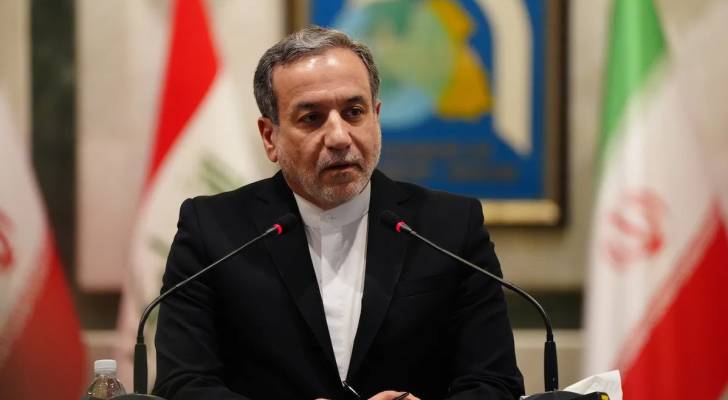Abbas Araghchi - Minister of Foreign Affairs of Iran
Iran accuses Netanyahu of 'dictating' US policy in nuclear talks
Iran on Monday accused 'Israeli' Prime Minister Benjamin Netanyahu of trying to dictate US policy on nuclear negotiations, warning that Tehran remains strong and ready to resist any external pressure.
Foreign Minister Abbas Araghchi, posting on X, condemned Netanyahu for "brazenly" attempting to influence President Donald Trump’s diplomatic efforts with Iran. "What is striking... is how brazenly Netanyahu is now dictating what President Trump can and cannot do in his diplomacy with Iran," Araghchi wrote.
Israel’s fantasy that it can dictate what Iran may or may not do is so detached from reality that it hardly merits a response.
— Seyed Abbas Araghchi (@araghchi) April 28, 2025
What is striking, however, is how brazenly Netanyahu is now dictating what President Trump can and cannot do in his diplomacy with Iran.…
Netanyahu had earlier demanded that any US-Iran agreement must dismantle Tehran’s ability to enrich uranium for nuclear weapons and impose restrictions on its ballistic missile programme.
Read more: Netanyahu calls for “dismantling” Iran's nuclear infrastructure
Araghchi dismissed 'Israel’s' demands as unrealistic. "Israel’s fantasy that it can dictate what Iran may or may not do is so detached from reality that it hardly merits a response," he said.
The remarks came as Iranian and US delegations completed a third round of indirect talks in Oman, with both sides reporting progress. The negotiations, which began on April 12, are focused on Iran’s nuclear activities and the lifting of US sanctions.
Tehran insists its military capabilities, especially its missile programme, are not open for negotiation — a stance echoed by the Islamic Revolutionary Guard Corps and Iranian state media, which cite these as "red lines."
Araghchi also criticized former US officials from the Biden administration, referring to them as "Netanyahu’s Allies in the Failed Biden Team" and accusing them of falsely portraying the ongoing talks as a revival of the 2015 Iran nuclear deal (JCPOA). "Many Iranians no longer believe the JCPOA is sufficient," he said, adding that the public expects real, tangible benefits rather than symbolic agreements.
He further warned that any military strike against Iran would be met with immediate retaliation: "There is no military option, and certainly no military solution. Any strike will be immediately reciprocated."
Since returning to office in January, President Trump has revived his "maximum pressure" sanctions campaign against Iran, similar to his approach during his first term when he withdrew from the 2015 nuclear accord.
Meanwhile, Iran has reaffirmed its commitment to supporting the "axis of resistance," a network of groups opposing Israel, including Yemen’s Houthi rebels, Hezbollah in Lebanon, Hamas in Gaza, and Shiite militias in Iraq.
Araghchi concluded by stressing Iran’s resilience against outside interference: "Iran is strong and confident enough in its capabilities to thwart any attempt by malicious external actors to sabotage its foreign policy or dictate its course. We can only hope our US counterparts are equally steadfast."




